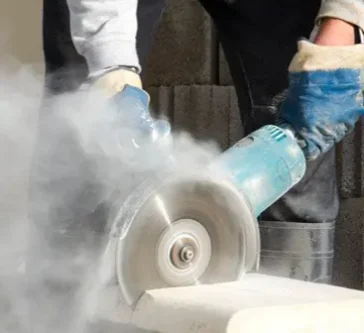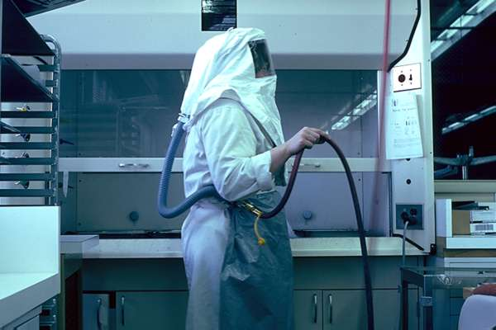Why Are Artificial Stone Countertops Deadly?

Artificial stone countertops, also known as quartz, artificial, manufactured, agglomerate, composite, reconstituted, or synthetic stone, contain a much higher percentage of silica fibers than natural stone. Artificial stone countertops can contain up to 90-95% silica, while natural stones like granite, slate, and porcelain typically contain only 45%, 30%, and 15% silica, respectively. Marble (3% silica) and limestone (2% silica) contain even less silica.
The silica in artificial stone countertops is finely crushed into a powder and then bonded together with polymer resins, pigments, and other additives. This process creates a strong and durable countertop material that is also scratch-resistant and stain-resistant. However, the high nano-sized silica content of artificial stone countertops also makes them a potential health hazard.

Artificial stone countertops are sold by the manufacturers as unfinished slabs or blocks. These slabs or blocks must be fabricated by fabrication shops before they can be installed in a consumer’s home or business. During the fabrication process, the artificial stone is cut, ground, polished, drilled, and installed. This process releases hazardous, often invisible, levels of nano-sized silica dust into the air.
Nano-sized silica dust is a serious health hazard. When inhaled, it can cause severe silicosis, which is often fatal if not treated by a lung transplant.
The risk of silica dust exposure is highest for workers who fabricate artificial stone countertops. These workers are exposed to large amounts of dust during the cutting, grinding, polishing, drilling, and installation process. In recent years, there have been several outbreaks of silicosis among workers in the artificial stone industry.
Consumers should also be aware of the potential health hazards of artificial stone countertops. If you are considering installing artificial stone countertops in your home, it is important to talk to your contractor about the risks of silica dust exposure during the installation process. You should also make sure that the contractor takes appropriate precautions to protect workers and others from exposure to silica dust.
The risk of silica dust exposure is highest when artificial stone countertops are first installed. This is because the cutting, drilling, and sanding that is required during installation can create a lot of dust. However, the risk of silica dust exposure can also be high if artificial stone countertops are later modified or repaired.
If you are concerned about the potential health hazards of artificial stone countertops, you can talk to your doctor or a respiratory health professional. They can help you assess your risk of exposure and recommend ways to protect yourself.
Have you worked as a fabricator, cutter, polisher, or installer of artificial stone countertops? If so, you may be entitled to financial compensation if you have been diagnosed with silicosis or lung cancer. Even if you are an undocumented immigrant, you may still be eligible for compensation. To contact an attorney for a free case evaluation, we recommend that you call (866) 476-8111 or complete a contact form today.




